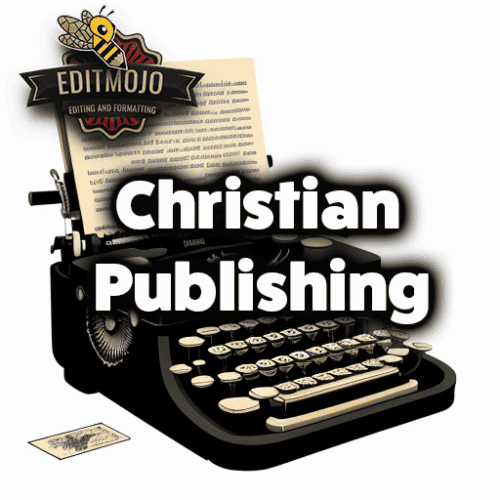Christian Publishing
Christian Publishing. Delving into the fascinating world of Christian publishing can feel like embarking on a spiritual journey across centuries. This industry’s remarkable history, coupled with its ever-evolving presence in contemporary society, paints a rich tapestry of cultural influences and spiritual nourishment.
From time-honored classics to modern-day spiritual guides, Christian publishers have continually fostered the proliferation of Christian teachings, ideas, and storytelling. But what underpins these publishing giants? And how can we, as writers or avid readers, navigate this intriguing landscape?
Key Takeaways
| Key Points | Details |
|---|---|
| History of Christian Publishing | From the early letters that formed the New Testament to the Gutenberg Bible, Christian publishing has a long and transformative history. |
| Types of Christian Publishers | Christian publishing comprises traditional, vanity or self-publishers, and hybrid publishers. |
| Market Size and Demographics | The Christian publishing industry experiences billions of dollars in annual sales, primarily among women over 35. |
| Role in Society | Christian publishers spread religious teachings, influence social and political conversations, and provide resources for personal and spiritual growth. |
| Future of Christian Publishing | Digital technology is driving the future of Christian publishing, with increasing popularity of eBooks, audiobooks, and online platforms. |
Historical Background of Christian Publishing
Emergence and Evolution of Christian Publishing
The history of Christian publishing is as old as Christianity itself. The early Christian writers were focused on writing letters and texts to strengthen the faith of their followers. These writings evolved into the New Testament[^1^].
However, it was Johannes Gutenberg’s invention of the movable type printing press[^2^] in the mid-15th century that revolutionized Christian publishing. The most notable book from this era was the Gutenberg Bible, one of the first major books printed in the Western world. This paved the way for the mass production of religious texts, leading to the rise of religious tracts during the Protestant Reformation.
By the 20th century, Christian publishing had grown into a full-fledged industry, meeting the spiritual needs of a diverse and growing Christian demographic.
Significant Christian Books and Publishers in History
Historically, Christian publishers have played pivotal roles in shaping society. Books like “Pilgrim’s Progress” by John Bunyan^3^ and “Mere Christianity” by C.S. Lewis[^4^] have left enduring marks on millions of readers worldwide. These classics, published by Christian publishers like William Collins and Geoffrey Bles, laid the foundation for modern Christian literature.

Understanding the Christian Publishing Industry
Types of Christian Publishers
Christian publishing today is an exciting mixture of traditional, vanity, and hybrid publishers.
- Traditional publishers take on all costs related to publishing and often offer authors an advance against royalties. Examples include Zondervan and Thomas Nelson.
- Vanity or self-publishers allow authors to maintain greater creative control, bearing the responsibility and cost of publication themselves.
- Hybrid publishers blend elements of traditional and self-publishing, offering more flexibility for authors.
Market Size and Demographics
Christian publishing is a vibrant segment within the broader publishing industry. In the U.S alone, the Christian Booksellers Association reports annual sales in the billions of dollars[^5^]. The primary demographic includes women over the age of 35[^6^], although there’s a considerable audience across other age groups and genders.
Christian Publishing Categories
Christian publishing is not a monolith. It spans a range of genres, each catering to a specific segment of the audience. These include:
- Bibles and prayer books: An evergreen category, with numerous translations, versions, and styles to meet various spiritual needs.
- Christian living and spiritual growth: These works offer guidance on integrating faith into everyday life and personal development.
- Christian fiction: From Amish romance to speculative fiction, this genre uses storytelling to convey Christian themes.
- Children’s books: These introduce Christian teachings to young readers in engaging, age-appropriate ways.
- Academic and theological texts: These cater to scholars, theologians, and students in religious studies.
The Role of Christian Publishers in Society
Christian publishers do more than just print books. They facilitate the spread of religious teachings and values, influence social and political conversations, and provide resources for personal and spiritual growth. In many ways, they are cultural architects, shaping the way society perceives and engages with Christianity.
Moreover, their books can often be found in various settings, including churches, academic institutions, and book clubs, demonstrating their wide-ranging influence.

Notable Christian Publishers Today
A handful of publishers dominate the Christian publishing landscape today.
Zondervan
Established in 1931, Zondervan^7^ has grown to be one of the leading Christian publishers worldwide. They specialize in Bibles, biblical reference works, and academic resources. One of their best-known publications is the NIV Bible, the most popular modern-English translation of the Bible.
Thomas Nelson
Thomas Nelson[^8^] is another heavyweight, with a history dating back to 1798. They offer a broad spectrum of books, including inspirational works, prayer books, and Christian fiction. They are known for publishing the New King James Version (NKJV) of the Bible.
Baker Publishing Group
Baker Publishing Group[^9^] is renowned for its commitment to Christian values and high editorial standards. They have several imprints catering to different segments, from children’s books to academic texts.
Crossway
Founded in 1938, Crossway^10^ is well-known for publishing the English Standard Version (ESV) of the Bible. They also publish books on Christian living, spirituality, and theology.
The Future of Christian Publishing
The future of Christian publishing looks vibrant and dynamic, shaped in large part by digital technology.
Ebooks and audiobooks are growing in popularity, allowing readers to access Christian content anytime, anywhere[^11^]. Online platforms and social media also offer new avenues for Christian publishers to connect with readers and market their books.
At the same time, we’re seeing emerging trends in content and genres. For instance, there’s a growing interest in works that explore the intersection of faith with issues like mental health, social justice, and environmental stewardship.
Despite these exciting developments, the industry faces challenges. These include navigating the digital transition, addressing the diverse needs of the Christian demographic, and maintaining relevance in a rapidly changing cultural landscape.
Becoming a Christian Author: Tips and Insights
Aspiring to become a Christian author? Here are some insights to guide your journey:
- Crafting Your Message: Start with a clear concept that aligns with your spiritual insights and convictions. Your authenticity is your greatest strength.
- Choosing the Right Christian Publisher: Look for publishers whose mission and genre preferences align with your writing. Review their submission guidelines carefully.
- The Submission and Publishing Process: Patience is key. It can take months to hear back from a publisher. In the meantime, keep refining your manuscript.
- Navigating Self-Publishing vs Traditional Publishing Paths: Each has its pros and cons. Research thoroughly and consider seeking professional advice.
- Marketing and Promoting Your Christian Book: Leverage social media, book reviews, and speaking engagements to reach your target audience.
Remember, it’s a journey of faith as much as it is a professional venture. Stay connected with your spiritual roots as you navigate this path.

Conclusion
Christian publishing is a fascinating realm of spiritual wisdom, literary tradition, and cultural influence. As readers, writers, or simply curious minds, we’re part of this narrative, contributing to its richness and dynamism.
Whether you’re a seasoned author or an aspiring writer, remember that your story matters. As Madeleine L’Engle rightly said, “We write to taste life twice, in the moment and in retrospect.” In the realm of Christian publishing, we could add, “and in the light of faith.”
References
[^1^]: New Testament – Wikipedia
[^2^]: Johannes Gutenberg – Wikipedia
[^4^]: Mere Christianity – Wikipedia
[^5^]: Christian Booksellers Association Market Research
[^6^]: Christian Reading Demographics – Publisher’s Weekly
[^8^]: Thomas Nelson
[^9^]: Baker Publishing Group
[^11^]: Christian Publishing Trends – Publisher’s Weekly
Here are some of the top Christian publishers:
- Zondervan
- Thomas Nelson
- Baker Publishing Group
- Crossway
- Tyndale House
- Bethany House
- WaterBrook & Multnomah
- InterVarsity Press
- Moody Publishers
- B&H Publishing Group
These publishers have extensive catalogs and a wide variety of books spanning numerous Christian genres.
Top Five Questions and Answers
| Questions | Answers |
|---|---|
| What are the types of Christian publishers? | Christian publishers can be categorized into traditional, vanity or self-publishers, and hybrid publishers. |
| What are some significant Christian books and publishers in history? | Significant books include “Pilgrim’s Progress” and “Mere Christianity,” with publishers like William Collins and Geoffrey Bles. |
| Who are the leading Christian publishers today? | Leading Christian publishers today include Zondervan, Thomas Nelson, Baker Publishing Group, and Crossway. |
| What is the future of Christian publishing? | The future of Christian publishing is being shaped by digital technology, with eBooks, audiobooks, and online platforms gaining popularity. |
| How can one become a Christian author? | To become a Christian author, it’s important to craft a clear message, choose the right publisher, understand the submission and publishing process, and effectively market and promote the book. |
Top Seven Resources and Further Reading
| Resource | Description |
|---|---|
| Christian Booksellers Association Market Research | Offers industry insights into Christian book sales. |
| Publisher’s Weekly | Provides news and reviews from the world of publishing, including Christian publishing. |
| Association of Christian Publishers | An organization dedicated to promoting excellence in Christian publishing. |
| Christian Manuscript Submissions | A service of the Evangelical Christian Publishers Association (ECPA) where authors can submit manuscripts. |
| The Christian Writer’s Market Guide | A comprehensive resource for getting published in the Christian marketplace. |
| Zondervan’s Guide to Christian Writing | A book offering insights into the Christian writing and publishing process. |
| Christian Writing Conferences | A list of conferences where aspiring authors can learn more about the industry and network with professionals. |
EditMojo: Enhancing the Quality of Christian Publishing
In the realm of Christian publishing, ensuring the clarity, accuracy, and power of your message is essential. This is where services like EditMojo come into play.
EditMojo is a professional editing service that helps authors hone their manuscripts to perfection. Whether it’s proofreading, copy editing, or comprehensive manuscript editing, EditMojo provides a range of services to suit various needs.
For Christian authors, an editing service like EditMojo can be invaluable. These professionals understand the specific nuances and expectations of the Christian audience. They can help refine your book’s content to enhance its readability, cohesiveness, and overall impact.
Furthermore, EditMojo’s expertise can prove essential in avoiding common pitfalls in manuscript preparation, thus improving your chances of catching the attention of Christian publishers. By collaborating with an editing service, you can bring your Christian literature to its full potential, ready to inspire and engage readers.
